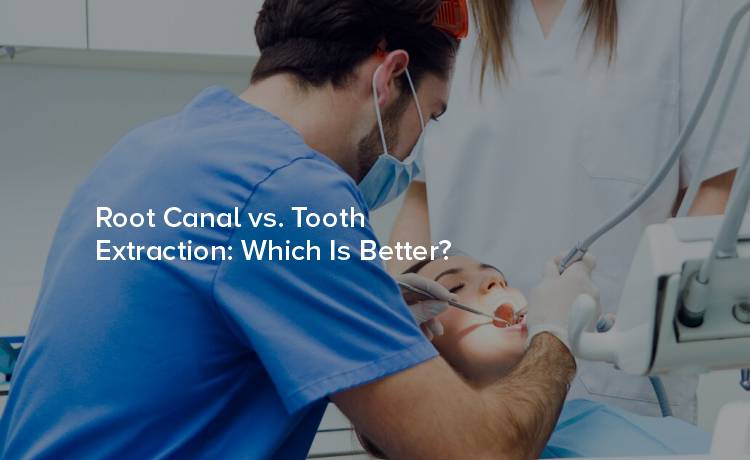
Dental issues can be daunting, especially when faced with significant decisions like whether to save a tooth with a root canal or to remove it with a tooth extraction. Both procedures aim to resolve pain and infection, but they have distinct benefits and consequences.
A root canal is a dental procedure aimed at saving a damaged or infected tooth. The dentist removes the infected or decayed pulp inside the tooth, cleans and disinfects the canals, and then seals the space to prevent future infection. Finally, a dental crown is often placed over the tooth for protection and restoration.
Root canals are necessary when:
Simply put, a root canal is the go-to treatment when you wish to save a natural tooth.
Keeping your natural tooth helps maintain normal chewing and biting force, while also preserving your jawbone structure.
With a root canal, there’s no need for additional treatments like bridges or implants that replace a missing tooth.
Covered with a crown, the treated tooth blends seamlessly into your smile.
Possible Downsides
Tooth extraction, as the name suggests, involves removing a tooth entirely from its socket. This procedure may be ideal in cases of severe damage, infection beyond repair, or overcrowding.
Tooth extraction is often recommended when:
By fully removing the diseased tooth, the chance of recurring infection or decay is eliminated.
Extractions often have a lower upfront cost compared to a root canal and crown.
For teeth that are too far gone, extraction is simpler and requires less follow-up in many cases.
Potential Drawbacks
Understanding these differences helps narrow down the best treatment for your situation.
1. Consult with Your Dentist
Your dentist is your best resource for understanding the condition of your tooth and the feasibility of each option. Be sure to ask the following questions:
Think about how each option will affect your dental health over time. Saving your natural tooth with a root canal is often the ideal solution for functionality and aesthetics. However, if further complications are anticipated, extraction may be the better choice.
Root canals are typically more expensive upfront, especially if a crown is required, but they may cost less in the long run since they avoid the need for replacements like implants. To make an informed decision, compare the costs and check what your dental insurance covers.
Regardless of which treatment you choose, aftercare is crucial to ensure long-term dental health.
If making this decision feels overwhelming, you're not alone. Reach out to your dentist to discuss your options in further detail. And remember, your dental health is an investment; every step you take today will impact your smile for years to come.